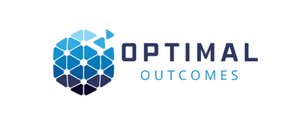Tel: 650-980-4870
Blog

Public Cloud Commitment
Annual Commitment Discount Programs
AWS
Reserved Instances (RIs): Up to 75% discount for 1-3 year commitments on specific instance types
Savings Plans: Up to 72% discount with more flexibility to change instance families, regions, and OS
Spot Instances: Up to 90% discount on unused capacity (though can be terminated)
Azure
Reserved Instances: Up to 72% discount for 1-3 year commitments
Azure Savings Plan: Up to 65% discount with flexible hourly compute spend commitments
Azure Hybrid Benefit: Up to 76% savings by using existing Windows/SQL Server licenses
Google Cloud Platform (GCP)
Committed Use Discounts (CUDs): Up to 70% discount for 1-3 year commitments to vCPU/memory amounts
Sustained Use Discounts (SUDs): Automatic 20%+ discounts for resources used >25% of the month (no commitment required)
Key Cost Optimization Strategies
1. Layered Commitment Approach
All three providers use a two-tier system:
Usage-based commitments (Reserved Instances, CUDs)
Relationship-based commitments (Enterprise agreements with spend minimums)
2. Flexibility vs. Savings Trade-offs
Highest savings: Fixed instance type commitments (AWS Standard RIs, Azure RIs)
Balanced approach: Flexible savings plans that allow instance family changes
Maximum flexibility: Pay-as-you-go with automatic discounts (GCP's SUDs)
3. Right-sizing Before Committing
Companies should:
Analyze historical usage patterns
Forecast growth accurately
Start with flexible options before locking into specific instance types
Avoid over-committing to spend-based agreements
4. Hybrid Strategies
Combine multiple discount types (e.g., Reserved Instances + Spot Instances)
Use automatic discounts where available (GCP's SUDs)
Leverage existing license benefits (Azure Hybrid Benefit)
Best Practices for Annual Commitments
Start Conservative: Begin with shorter terms (1 year) and flexible options
Monitor Usage: Track actual vs. committed usage to avoid waste
Plan for Growth: Account for business expansion in commitment sizing
Consider Workload Patterns: Match commitment types to workload predictability
Negotiate Holistically: Combine usage and spend commitments for maximum leverage
The key is understanding that commitment discounts can provide savings of 65-75%, but companies must balance these savings against the risk of over-committing to unused capacity. Proper forecasting and a layered approach using both flexible and fixed commitments typically yields the best results.
Menu
Services
© Copyright 2023. Optimal Outcomes. All rights reserved.
